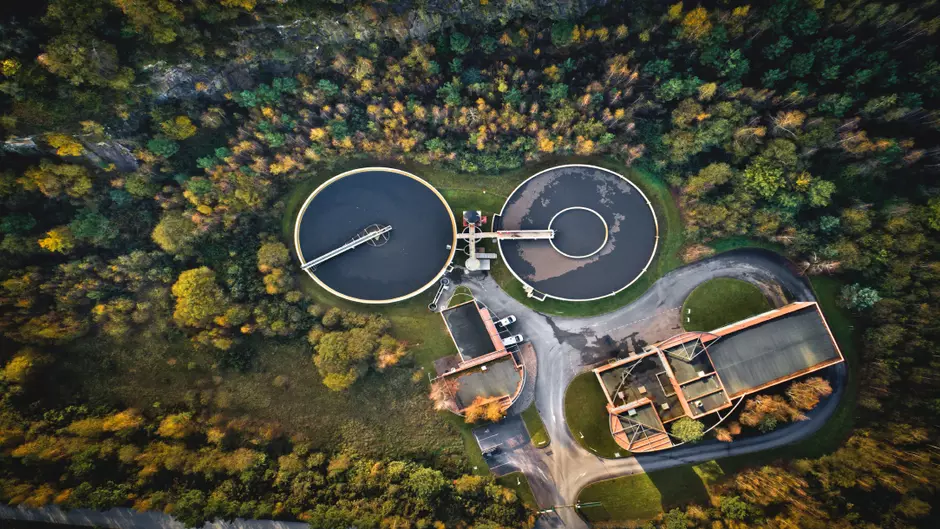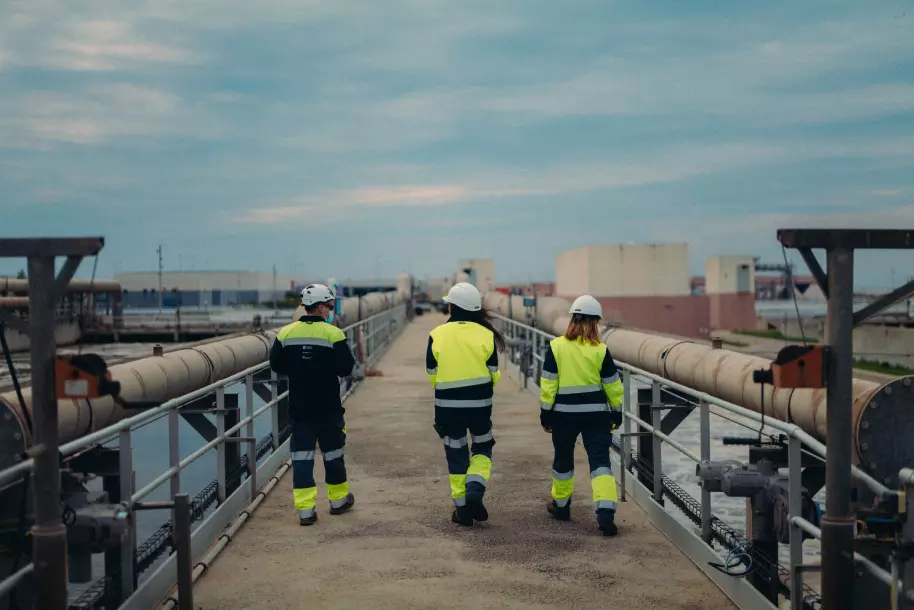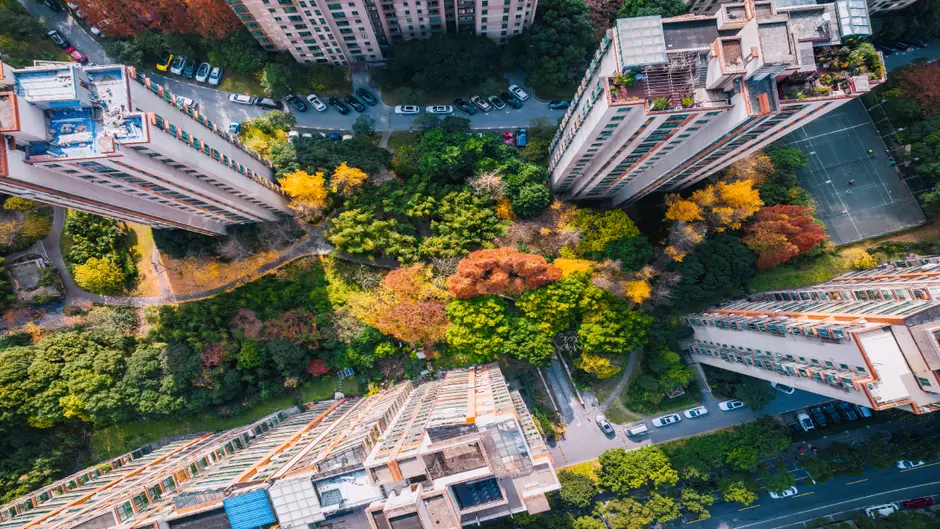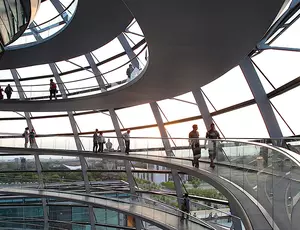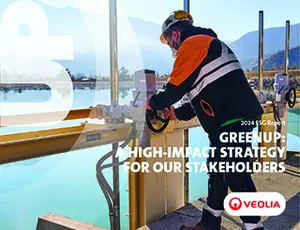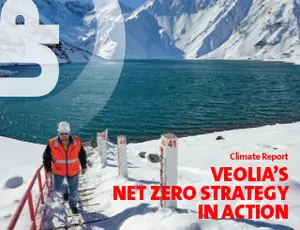To be useful to all its stakeholders, Veolia has incorporated environmental, human resources and social (CSR) objectives and indicators at the heart of the company’s operation. This is what the Group refers to as “multifaceted performance”. Constituting a tool for steering and transformation, multifaceted performance approaches economic, human resources, social and environmental issues as an inseparable whole while striking a balance between these various performance dimensions.
What is the definition of CSR?
Corporate Social Responsibility, or CSR, refers to the role that a company can play in the sustainable development of our societies.
In 2015, the United Nations defined 17 Sustainable Development Goals (SDG) for 2030 which notably aim to enable everyone to live in good health with access to clean water and sanitation services, to combat climate change while preserving and restoring ecosystems, and to promote sustained, inclusive and sustainable economic growth and decent work for all.
A company or organization wishing to define a CSR policy will seek to identify the environmental, human resources and social impacts of their activities, and in so doing their possible contribution to one of the 17 SDGs. They will then seek to maximize their positive impacts and limit any negative impacts. To achieve this, they are encouraged to interact with their stakeholders.
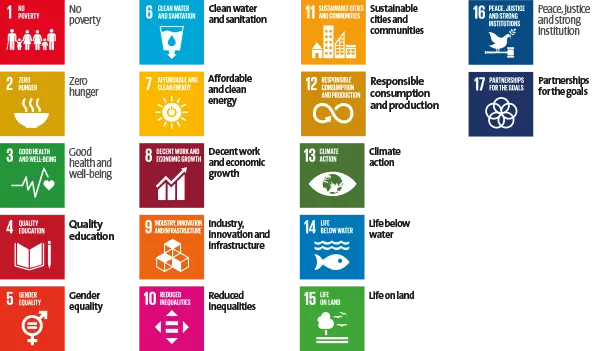
The 3 pillars of Veolia’s CSR policy
The Group works in consultation with all its stakeholders, convinced that economic, environmental, human resources and social imperatives must be considered as an inseparable whole.
In terms of environmental, human resources and social performance, Veolia is committed to:
The Group’s CSR policy is supported by solid governance, a commitment to compliance that is expressed at the highest level of the Group, and an Ethics Charter.
Multifaceted performance: an integrated approach to CSR and corporate strategy
Wherever Veolia operates, our stakeholders must experience a “before” and an “after”, thanks to our excellent solutions and multifaceted performance
Estelle Brachlianoff, CEO of Veolia
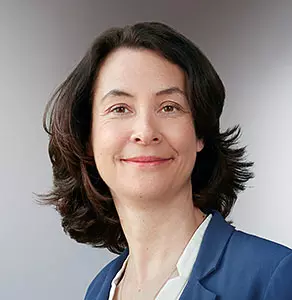
Veolia's purpose is a text that specifies the company's usefulness to society. The Group also expresses its ambition to consider the expectations of its stakeholders: employees, customers, shareholders, representatives of society and the planet, in its value creation and sharing.
To implement its purpose, Veolia adopted in 2020 a tool for in-depth transformation: multifaceted performance. This is a tool that guides the management of the Group's activities in a search for balance between 5 performance dimensions: economic and financial, commercial, human resources, social and environmental. The same level of attention is paid to each of these dimensions to ensure a maximum sustainable impact.
Multifaceted performance reconciles CSR, with its human resources, social and environmental dimensions, with the company's financial and commercial challenges.
The Group is committed to multifaceted performance organized, in its GreenUp strategic program for 2027, around 15 progress objectives. Each of the indicators associated with the objectives is measured and audited by independent bodies in order to monitor progress. In particular, these indicators are used to calculate the variable compensation of Veolia's senior executives. This requirement is applied to all the Group's processes, so that the management of all its activities is guided by these multifaceted performance objectives.
Multifaceted performance is notably shared within the company and with our stakeholders by means of the "wheel" opposite, which features:
- the relevant stakeholders,
- the performance type (economic and financial, commercial, human resources, social and environmental),
- the commitments adopted by the company,
- the sustainable development goal to which they correspond.
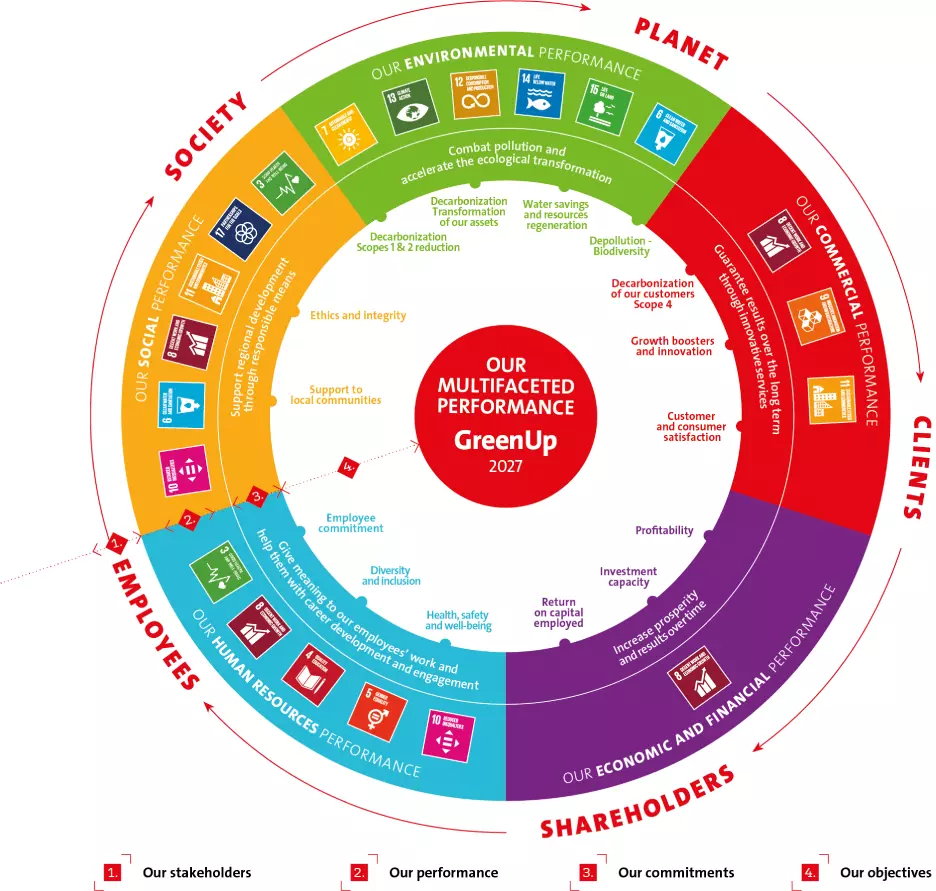
Multifaceted performance implemented in a contract in Côte d’Ivoire
In partnership with PFO Africa, Veolia has designed one of the largest drinking water treatment plants in West Africa. Located on the La Mé River, the plant will help meet the growing water needs of the population of Abidjan, Côte d'Ivoire. The infrastructure was designed to meet the challenge of sustainable access to water: every day, it produces 240,000 m3 of drinking water using surface water rather than groundwater. It is a solution that is changing the lives of local residents in a region that is particularly vulnerable when it comes to supplying drinking water to its growing population.
Our multifaceted performance is measured in this plant: development of local jobs, increasing the number of women in the workforce, energy efficiency of buildings, technological innovation to preserve the water table... Our impacts are numerous and enable sustainable improvement in access to an essential service.
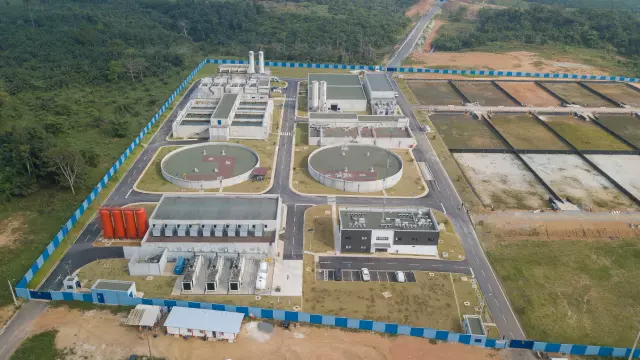
Since 2018, Veolia has commissioned the French consulting firm Utopies to conduct an annual study on its socioeconomic footprint to quantify and demonstrate the local impact of the Group’s businesses (purchases, jobs supported, responsible taxation, etc.). Initially conducted in France, then extended to 52 countries by 2021, the study now covers over 98% of Veolia’s revenue. It is proving to be a powerful indicator of the company’s local presence.
>Access the Socio-Economic Footprint Platform
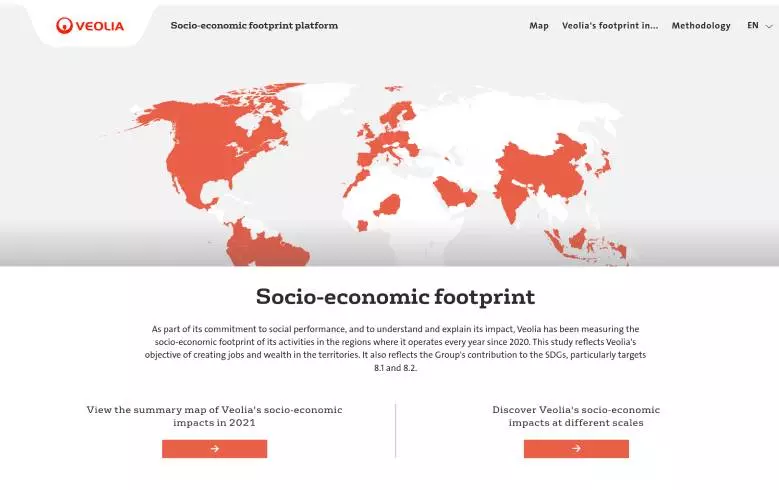
An essential contribution to the United Nations Sustainable Development Goals (SDGs)
Veolia’s purpose is to contribute to human progress, by resolutely adhering to the Sustainable Development Goals (SDGs) defined by the UN, in order to achieve "a better and more sustainable future for all".
Veolia is involved to a greater or lesser extent in the implementation of each of the 17 UN SDGs, with a direct impact on 14 of them.

The 14 impacted SDGs
10 SDGs directly related to its activities
As a player in urban services, Veolia has a major role in the management of essential water and wastewater services (SDG 6), energy (SDG 7) and sanitation (SDG 11). The Group promotes innovative industrial production (SDG 9) and more responsible consumption through the circular economy (SDG 12). Through its solutions, it also contributes to good health and well-being (SDG 3), climate action (SDG 13) and ecosystems (SDG 14 and 15). Finally, by promoting access to essential services, Veolia contributes to the reduction of inequalities (SDG 10).
3 SDGs linked to its organizational priorities as a responsible company
Veolia is working to develop the skills of its employees with a view to employability, but also to create value for its clients and regions through the network of campuses (SDG 4). The Group is committed to gender equality in the workplace and is working to increase the number of women in its professions and managers (SDG 5). Veolia is committed to supporting responsible growth by promoting decent working conditions for all, while respecting the human rights of its employees, subcontractors and suppliers (SDG 8).
1 key SDG as a lever in achieving the SDGs
As a local operator, Veolia interacts with all its stakeholders to jointly develop solutions adapted to the challenges of the regions. By developing new partnerships, relying on the complementary expertise provided by its partners and the creation of shared value, Veolia is helping to strengthen the means of implementing the SDGs (SDG 17).



